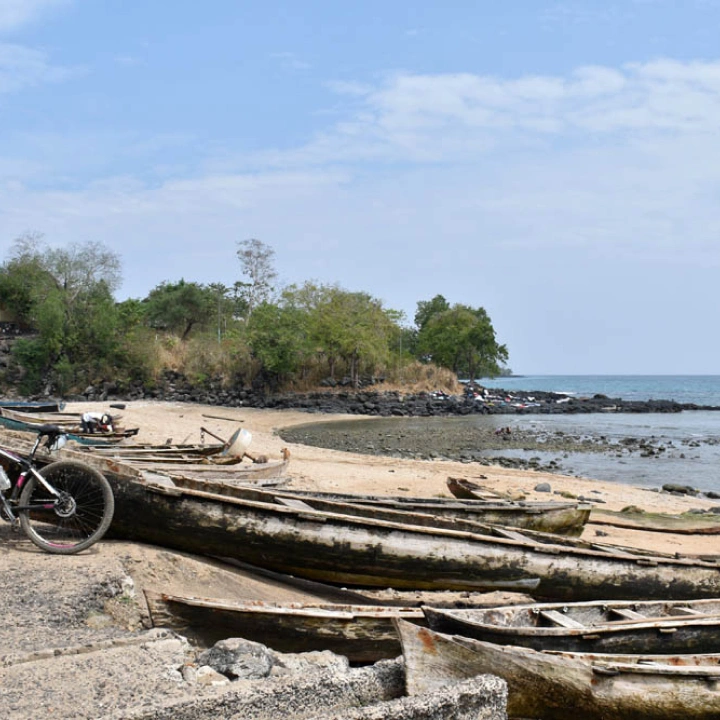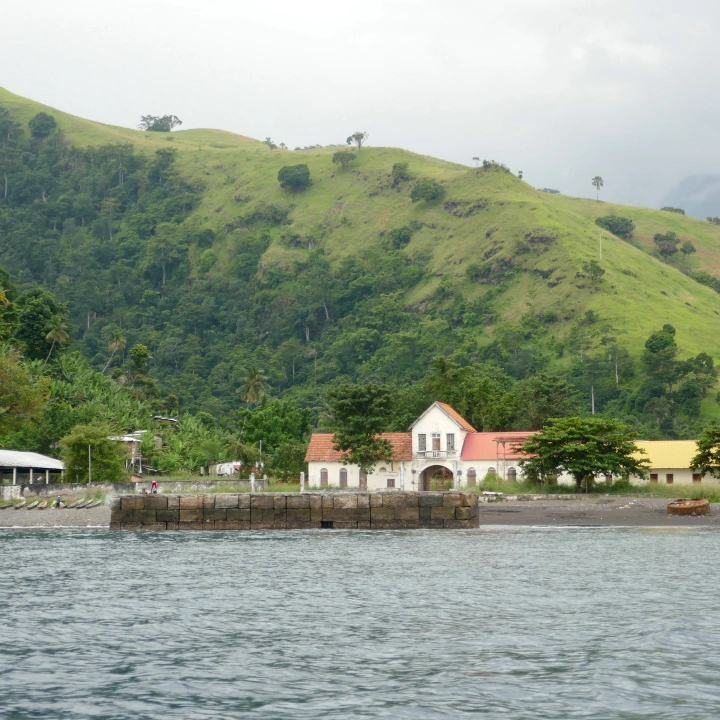
Top Restaurants in São Tomé & Príncipe - Browse, Review, and Book with Eatagram
Exploring the Culinary Delights of São Tomé and Príncipe
São Tomé and Príncipe, an island nation in the Gulf of Guinea off the coast of Central Africa, offers a unique culinary experience rooted in its tropical climate and rich cultural heritage. From fresh seafood to tropical fruits, São Toméan cuisine reflects the islands' Creole, Portuguese, and African influences.
São Toméan cuisine is characterized by its use of locally sourced ingredients such as fish, tropical fruits, and root vegetables. Calulu, a traditional dish influenced by Angolan cuisine, features fish (often dried and salted) cooked with tomatoes, onions, and okra. Feijoada, a Portuguese-inspired bean stew with pork or sausage, is a hearty favorite. Fish moamba, a spicy stew made with palm oil, garlic, and chili peppers, showcases the islands' abundant seafood.
Café São Tomé, a rich and flavorful coffee grown on the islands' volcanic soils, is a popular beverage enjoyed throughout the day. Ponta figo, a local rum distilled from sugarcane, is a favorite spirit known for its smooth taste and authenticity. Ginger Beer, a refreshing non-alcoholic drink made from fresh ginger, sugar, and water, is enjoyed for its spicy kick and cooling effect.
Each island in São Tomé and Príncipe offers its own culinary specialties. In São Tomé, Angolares stew, a slow-cooked fish stew prepared in a traditional clay pot, is a specialty of the Angolar community. In Príncipe, bolo de fuba, a cornmeal cake flavored with coconut and sometimes served with honey, reflects the island's agricultural bounty and Portuguese influence.
Food in São Tomé and Príncipe is deeply intertwined with local customs and traditions, often serving as a centerpiece of social gatherings and celebrations. Festa Junina, a traditional festival celebrated with music, dance, and feasting, features special dishes that highlight the islands' cultural diversity and culinary heritage.
São Tomé and Príncipe prioritize sustainable practices in agriculture and fishing to preserve their natural resources and culinary traditions. Efforts to promote organic farming, support local fishermen, and protect marine biodiversity ensure the availability of fresh, locally sourced ingredients for traditional dishes.
Explore more on Eatagram!





